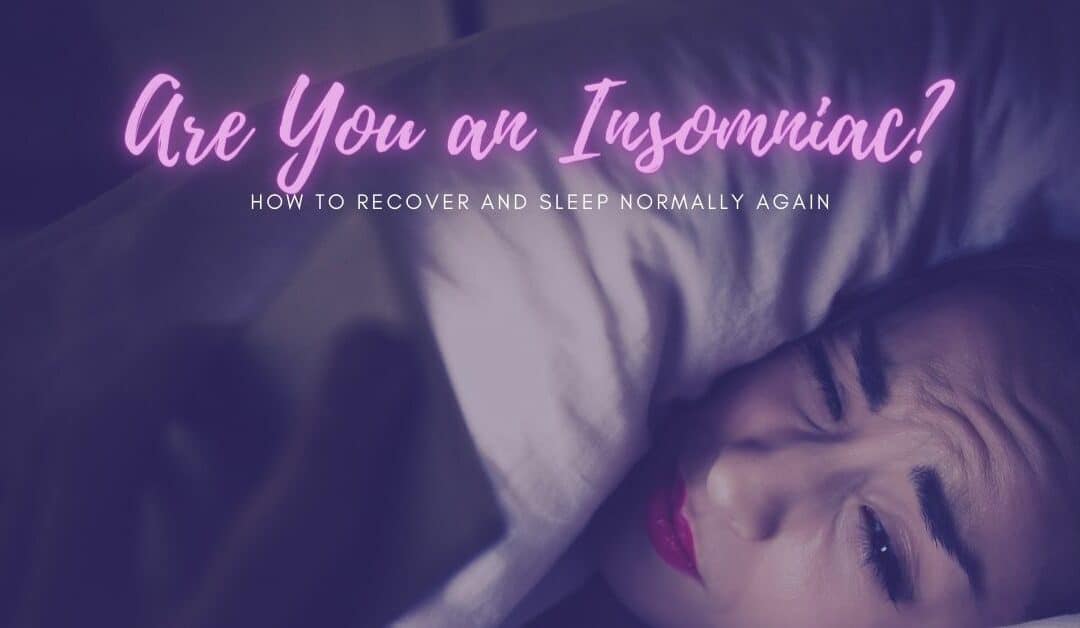Do you have trouble sleeping at night? Do you find yourself tossing and turning or even getting up to work because you can’t fall asleep? If so, you may have insomnia, a sleep disorder that affects millions of people worldwide. Let’s explore what it means to be an insomniac and how to sleep normally again.
What is Insomnia? What are the Symptoms?
Insomnia is a sleep disorder that can make it difficult to fall asleep, stay asleep, or both. People with insomnia may feel tired during the day and have trouble concentrating. They may also have difficulty falling asleep at night. Symptoms of insomnia can vary from person to person but typically include:
- Difficulty falling asleep
- Waking up frequently during the night
- Waking up early in the morning
- Feeling tired during the day
If you are experiencing any of these symptoms, you should consult with an ENT doctor to see if you may have insomnia.
Two Types of Insomnia
There are two types of insomnia: primary and secondary. Primary insomniacs have never been able to sleep well, while secondary insomniacs have developed insomnia after having good sleep for a time. There are many causes of secondary insomnia, including stress, anxiety, medications, and medical conditions.
Most people with insomnia can find help with lifestyle changes and behavioral therapies. If these do not help, some medications can also treat the condition.
What Causes Insomnia?
There are many different causes of insomnia. Some people may have difficulty sleeping due to stress or anxiety. Others may have medical conditions that make it difficult to fall asleep or stay asleep. Still, others may take medications that cause insomnia as a side effect.
Some common causes of insomnia include:
- Stress: If you’re worried and wound up when you lie down to sleep, it can affect your ability to relax and fall into a deep sleep state. Try to do activities before bed that help you relax, such as journaling, drinking warm milk, light stretching or massage, and listening to calming music.
- Anxiety: If you suffer from terminal anxiety, it’s worth talking with your doctor if your sleep is at stake. Lack of sleep is not something to just live with. There are ways to sleep better and feel better during the day. Your health can also suffer from lack of sleep, causing your anxiety to worsen.
- Medications: Some medications can cause hyperarousal of your central nervous system. If you take a medicine that increases your awareness and level of excitement, consider taking it in the mornings or reducing your dose if your doctor agrees.
- Medical conditions: Certain medical conditions can cause insomnia, including hyperthyroidism and sleep apnea. Your ENT doctor can determine if you suffer from a medical condition during a sleep study. If you think there is a medical reason you stay awake or wake up early, see your ENT doctor for a sleep study to find out what is happening.
Insomnia is a severe condition that can significantly impact your life if left untreated. However, with proper treatment, most people with insomnia can recover and sleep normally again.
How to Treat Insomnia
Most people with insomnia can make lifestyle changes or take advantage of behavioral therapies. If these do not help, medications can treat the condition.
Some standard medical treatment options for insomnia include:
- Lifestyle changes such as a predictable schedule and avoiding blue light in the 2 hours before bedtime
- Behavioral therapies to help with depression or anxiety
- Medications to calm your system or reduce restless legs
- Different types of surgeries, procedures, or CPAP for sleep apnea conditions
If you have chronic insomnia, don’t give up and accept that you sleep poorly. See your ENT doctor and find solutions so that you can sleep well and wake up feeling energetic. Sleep is needed for your body to function correctly.
Dangers of Not Getting Enough Sleep
Regularly not getting enough sleep can be dangerous for your health. Some of the risks associated with not getting enough sleep include:
- Obesity: when you’re sleep-deprived, your body produces more ghrelin, a hormone that triggers hunger.
- Diabetes: not getting enough sleep can increase your risk of type II diabetes.
- Heart disease: heart attacks, strokes, and irregular heartbeats have links to not getting enough sleep. People who sleep less than six hours a night have a higher risk of stroke.
- Depression: Sleep-deprived people are more likely to be depressed.
- Accidents: A tired body and brain can make you more accident-prone. Drowsy driving is responsible for thousands of car accidents every year.
- High Blood Pressure: not getting enough sleep can lead to high blood pressure.
We Can Help
At Enticare, our board-certified sleep specialists help you find solutions for insomnia. Living as an insomniac can wreak havoc on your health and energy levels. Find ways to get your zzzs and live a full life again. Schedule a consult or sleep study and find the answers you need to wake up feeling refreshed again.

